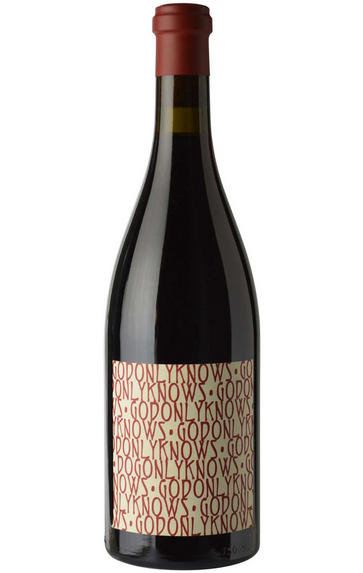
2014 Cayuse Vineyards, God Only Knows, Walla Walla Valley, Washington, USA
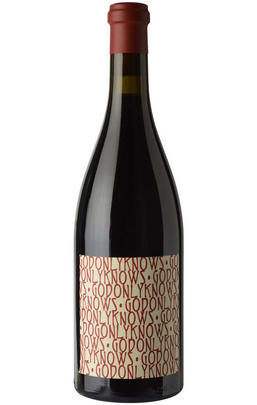
Critics reviews
Jeb Dunnuck - 30/06/2017
About this WINE
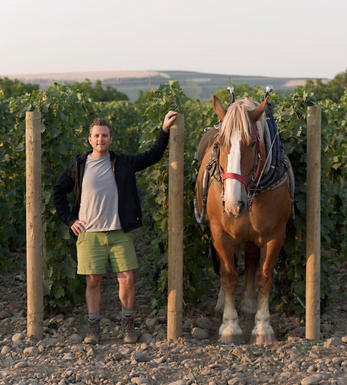
Cayuse Vineyards
Cayuse Vineyards is one of the leading wine producers in Washington State, owned and run by Frenchman Cristophe Baron. Cayuse's single vineyard Syrahs have become incredibly sought after and are compared with the finest wines from the Northern Rhone.
Christophe Baron grew up among the vineyards and cellars of his family's centuries-old Champagne house, Baron Albert and became the first Frenchman to establish an estate domaine in Washington State. While visiting the Walla Walla Valley in 1996, Christophe spotted a plot of land that had been plowed up to reveal acres of softball-sized stones.
He became ridiculously excited. This stony soil, this terroir, reminded him of vineyards he had visited in France and Spain. The difficult ground would stress the grapevines, making them produce more mature, concentrated fruit. Christophe Baron had found a new home.
The majority of the vineyard is planted with Syrah, and the rest dedicated to Cabernet Franc, Cabernet Sauvignon, Grenache, Merlot, Tempranillo and Viognier. All of the vineyards are planted in rocky earth within the Walla Walla Valley appellation. Cayuse is also the first domaine in Walla Walla to farm using biodynamic methods.
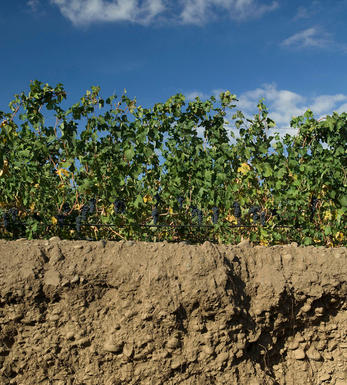
Washington State
Washington State is the United State’s second-largest wine region, second only to California. The first grapes were planted here in 1825, though it wasn’t until 1960 that the first commercial vineyards were planted.
The state has 20 American Viticultural Areas (AVAs). The first, Yakima Valley, was established in 1983. Columbia Valley AVA is the largest; the region is shared between Washington and neighboring Oregon. Other notable AVAs include Walla Walla Valley, Puget Sound, Red Mountain, and Horse Heaven Hills.
Washington’s largest producer, Chateau Ste. Michelle was founded in 1967. Today, there are over 1,000 wineries in the state, along with over 400 winegrowers. Among the leading producers here are Cayuse Vineyards, Horsepower Vineyards, and Hors Catégorie Vineyards.
A wide range of grape varieties is grown here, with Cabernet Sauvignon the most widely planted, followed by Chardonnay, Riesling, Merlot, and Syrah.
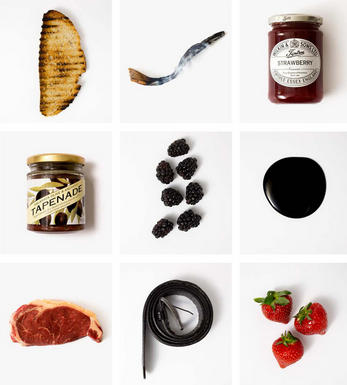
Grenache/Garnacha
Grenache (Noir) is widely grown and comes in a variety of styles. Believed to originate in Spain, it was, in the late 20th century, the most widely planted black grape variety in the world. Today it hovers around seventh in the pecking order. It tends to produce very fruity, rich wines that can range quite widely in their level of tannin.
In many regions – most famously the Southern Rhône, where it complements Syrah and Mourvèdre, among other grapes – it adds backbone and colour to blends, but some of the most notable Châteauneuf du Pape producers (such as Château Rayas) make 100 percent Grenache wines. The grape is a component in many wines of the Languedoc (where you’ll also find its lighter-coloured forms, Grenache Gris and Blanc) and is responsible for much southern French rosé – taking the lead in most Provence styles.
Found all over Spain as Garnacha Tinta (spelt Garnaxa in Catalonia), the grape variety is increasingly detailed on wine labels there. Along with Tempranillo, it forms the majority of the blend for Rioja’s reds and has been adopted widely in Navarra, where it produces lighter styles of red and rosado (rosé). It can also be found operating under a pseudonym, Cannonau, in Sardinia.
Beyond Europe, Grenache is widely planted in California and Australia, largely thanks to its ability to operate in high temperatures and without much water. Particularly in the Barossa Valley, there are some extraordinary dry-farmed bush vines, some of which are centuries old and produce wines of startling intensity.


Buying options
Add to wishlist
Description
There are 533 cases of the 2014 Grenache God Only Knows Armada Vineyard, and as always, it's an unknown blend that's dominated by Grenache (reportedly from vine cuttings from Rayas). It's fermented with just about 100% whole clusters in concrete and aged mostly in neutral puncheons and foudre, with one concrete egg. A bigger, richer wine than the No Girls cuvee, this beauty packs a punch in its black cherry, reduced strawberry, herbes de Provence and crushed violet aromas and flavors. With full-bodied richness, a supple, elegant style and fine tannin, this singular beauty will benefit from a year or three of cellaring and keep for 10-15 years.
Jeb Dunnuck - 30/06/2017
wine at a glance
Delivery and quality guarantee